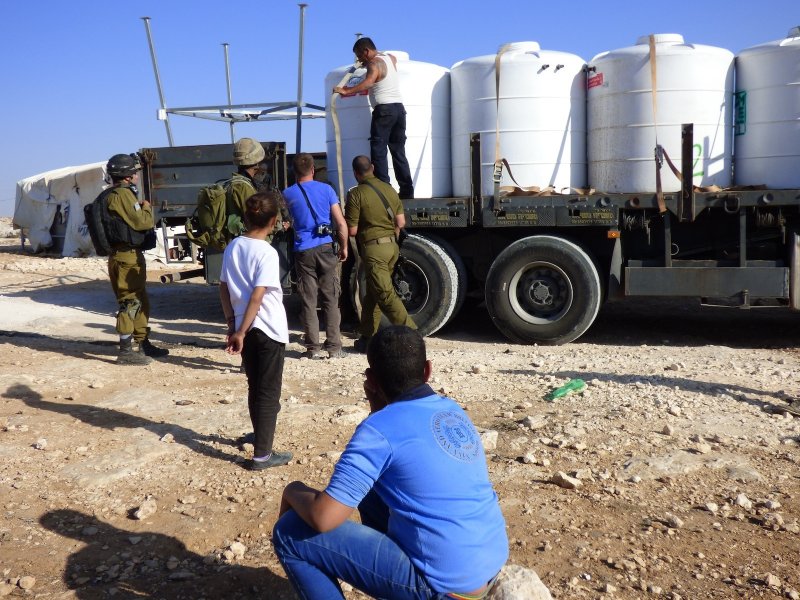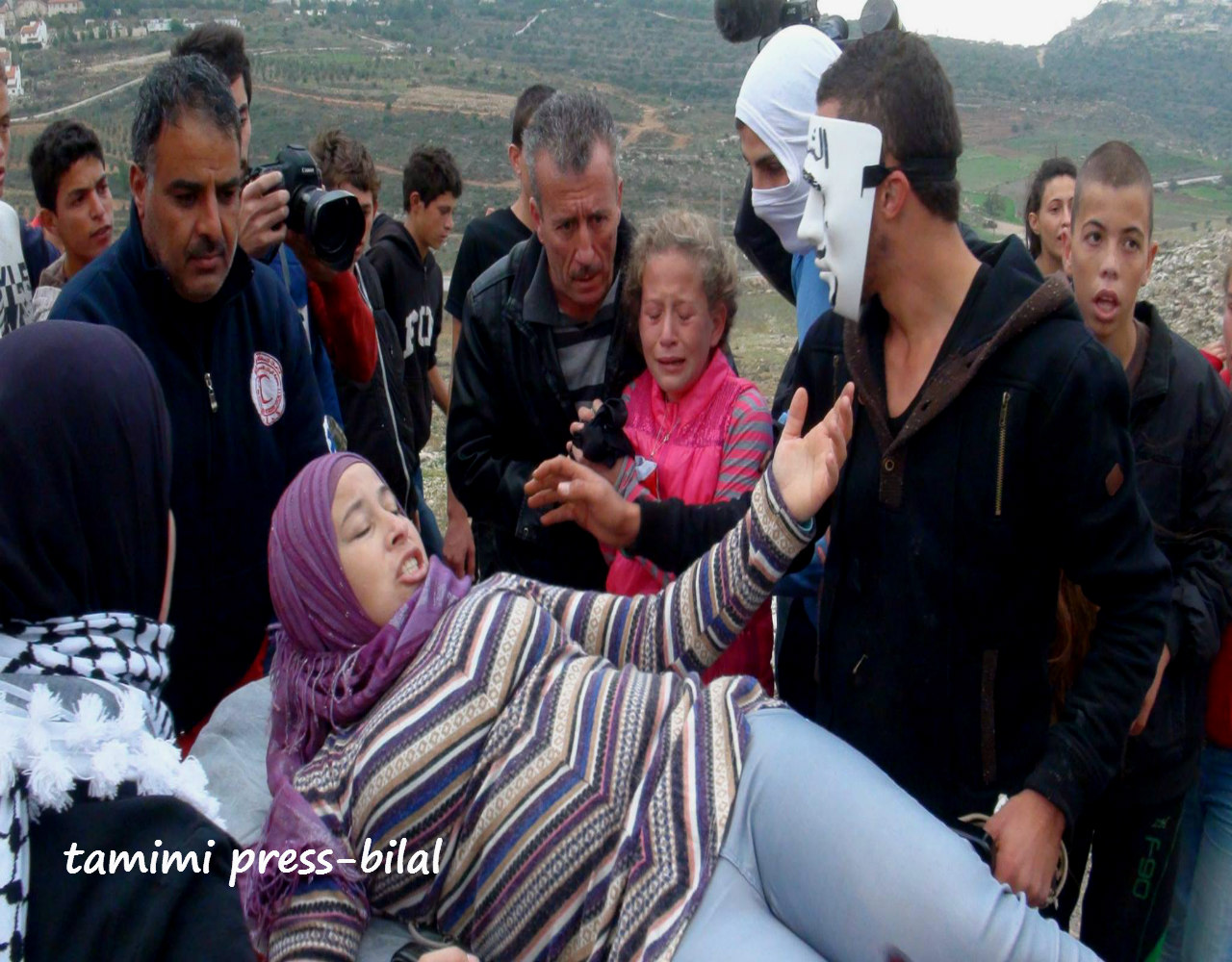Author: ISM Media
-
Israeli military beat and detain young men in Hebron
23rd November 2014 | International Solidarity Movement, Khalil | Hebron, Occupied Palestine Yesterday evening Israeli forces beat and detained young Palestinians on Tel Rumeida hill in al-Khalil (Hebron). A twenty-two-year-old man was taken from the scene by an ambulance. Four others between the ages of eighteen and twenty-four were handcuffed and detained in a military…
-
Israeli forces seize a tractor, its truck, four water tanks, and three bases from Susiya village
22nd November 2014 | Operation Dove | Susiya, Occupied Palestine On November 20th, the Israeli forces seized a tractor, its truck, four water tanks and three tanks’ bases from the Palestinian village of Susiya. In the early morning DCO [District Coordination Office] officers approached the Palestinian village to take pictures of the ongoing works to install…
-
Three shot with live ammunition during Nabi Saleh protest
22nd November 2014 | International Solidarity Movement, Ramallah team | Nabi Saleh, Occupied Palestine Israeli forces shot and injured three Palestinians participating in a weekly Friday demonstration in the village of Nabi Saleh. Soldiers fired .22 caliber bullets, a form of live ammunition which has maimed and killed multiple Palestinians, even as Israel continues to claim it as a…



